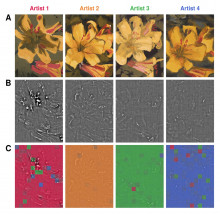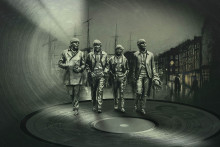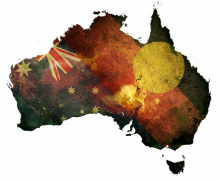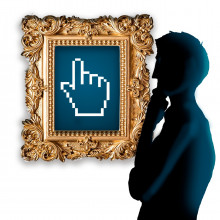IP in the news
EPO has published the European Patent Academy 2022 training catalogue
Startup plans to create a worldwide network of flying taxi and cargo drone hubs
The ‘vertiport’ sites will provide essential infrastructure to transform the way people and goods are transported in city centres
The urban air mobility market is on the up, with forecasts predicting it could reach US$1 trillion in the next 20 years. From flying taxis to delivery drones, emerging technologies have the potential to transform how people and goods move around cities, by-passing congested road transport systems by - literally - rising above them.
Researchers train AI to attribute paintings based on detailed brushstroke analysis
Art historians may have a new tool for settling the attribution of disputed paintings using artificial intelligence (AI) thanks to research by a cross-disciplinary team led by physicists at Case Western Reserve University in Cleveland, Ohio. The research, published in November in the journal Heritage Science, shows how machine learning analysis of small sections of topographical scans of paintings—some as tiny as half a millimeter—was able to attribute the works to the correct artist with up to 96% accuracy.
The Beatles and John Lennon memorabilia to be sold as NFTs
John Lennon's eldest son Julian is selling several pieces of music history from his personal collection.
However, he will keep the physical items as each piece of memorabilia will be sold as a non-fungible token (NFT).
Items being auctioned include a black cape worn by his father in the film Help! and handwritten notes for The Beatles song Hey Jude.
NFTs have been touted as the digital answer to collectables, but critics have warned about risks in the market.
The Aboriginal flag can now be reproduced by anyone without fear of legal threats
The Australian government has bought the Aboriginal flag's copyright in a bid to "free" the symbol of identity from bitter fights over who can use it.
Indigenous artist Harold Thomas created the flag in 1971 as a protest image but it is now the dominant Aboriginal emblem and an official national flag.
Despite this, many Aboriginal people say the flag has been "held hostage" by copyright deals that limit its display.
The flag can now be reproduced by anyone without fear of legal threats.
Face to face with Ai-Da the robot artist
Self-portraits by ultra-realistic android go on show at Design Museum in London
She, if it can be called a she, began her career with abstract art but has now moved to self, if they can be called self, portraits and they are alarmingly good.
“She is getting better all of the time,” said Aidan Meller, the force behind Ai-Da, the world’s first ultra-realistic robot artist, who is the subject of a display at the Design Museum in London.
The Balance Between Art and IP Theft in NFT Culture
From "Squid Game" to Olive Garden, the NFT boom is an orgy of intellectual property infractions.
The most popular show in Netflix history, “Squid Game,” earned an estimated $900 million for the streaming company. And the producers are not stopping there. They are gearing up for even more revenue as they look towards season two and have secured more than two dozen trademarks for the property as they tee up a range of merchandising and licensing deals.
World Intellectual Property Day Youth Video Competition
Can You Trademark a #Hashtag?
Have you been asked to stop using a branded or trademarked hashtag? Can you be liable when using a branded (and perhaps trademarked) hashtag on social media? Think about it; isn't this against everything social media stands for?
It All Started With a Hashtag Cease Command
A recent post in our Social Media Managers Facebook group read:
I was just told to delete a tweet we sent using (#)WorldCup because “that hashtag is considered copyrighted material and only FIFA is allowed to use it.”
Say what? So many questions!









